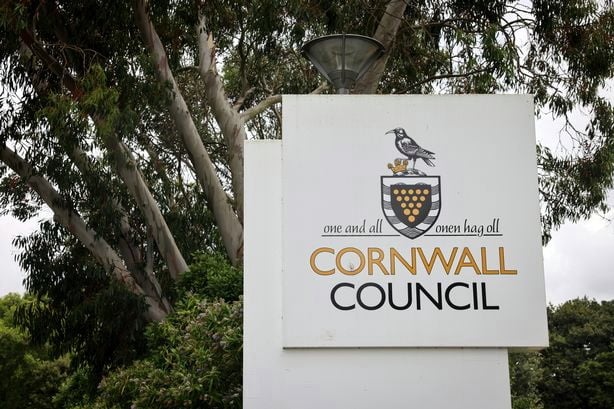Senior officers at Cornwall Council have been told that “stringent measures” will have to be taken if an overspend of £15m is not brought under control.
The move could mean that the council will not take on any new commitments or services if savings aren’t made by the end of this month.
The stark message was delivered by the council’s deputy leader and portfolio holder for resources Cllr David Harris at a meeting of the local authority’s Conservative cabinet last week.
He has written to the government in “fairly blunt terms” to express the council’s concerns about the financial sustainability of local government in general and Cornwall in particular.
A council performance report for the second quarter (Q2) of the 2023/24 financial year shows an overspend of £14.9m – £7m in the first quarter and £7.9m from July to September.
The main areas continue to be in home to school transport (£5m), housing temporary/emergency accommodation (£8m) and housing benefits (£3.9m). In addition, since the first quarter of the year, children in care services have seen increased costs with an expected overspend of £4.3m alongside council pay inflation of £4.1m due to a pay award, which has recently been accepted by unions.
The saving target for 2023/24 is £50.046m. It is anticipated £41.502m (83%) of these savings will be delivered during that time, with £29.084m already delivered. The report recommends to full council that its capital programme be uplifted by £6.315m.
Cllr Harris told fellow cabinet members: “You can see from the Q2 report the tide is yet to turn on increasing expenditure. I would ask all the overview and scrutiny committees to look again at the areas of concern before the calendar year is out.
“I’ve amplified the message from the Local Government Association (LGA) to Jeremy Hunt MP. In their open letter, the LGA quite rightly pointed out that local government being the fabric of the country provides more than 800 services that positively impact the daily life of every person in every community. However, despite additional funding this year, local government finances are under strain like never before.”
Cllr Harris pointed out that if the situation doesn’t change, councils face a funding gap of around £4 billion over the next two years just to keep services at current levels.
“As the Q2 performance shows starkly, Cornwall Council is not immune from those financial strains and stresses,” he added. “Our services continue to face high levels of inflation which, of course, brings with it higher costs and greater uncertainty.
"Demand-led services such as home to school transport, temporary emergency housing and children in care have ongoing and increasing pressures being placed upon them. We are not unique here – this is across the country, particularly in relation to children in care.
“These areas are those which have largely contributed to the forecast overspend for this financial year of £14.9m. As a result of the overspend it is becoming increasingly difficult to meet growing service demands and we’re trying like heck to find ways that we can. We continue to analyse and address our major pressures through demand management strategies.”
He said a budget and savings review group has been set up to identify areas where the overspend can be reduced.
“All senior officers have been made aware that if overspends cannot be brought under control by the end of this month some fairly stringent measures will be introduced to reduce spending, including no new commitments being taken on without being approved by the review group.”
Cllr Harris ended his speech on a cautiously positive note. “I remain confident these measures should reduce the overspend by the end of the financial year. We are in a lot better position than many councils thanks to previous work.
"We have strong reserves and an excellent finance team to keep eyes on this. However, we cannot go on like this – demand for those services that are statutory obligations continue to increase. Just take those demands in relation to children. Central government must provide assistance here.”
The council announced in September that it will need to cut some services as it faces “difficult decisions” to achieve almost £75 million in savings by 2028. Its draft budget for 2024/25 sees council tax increasing by 4.99 per cent, which will result in a Band D charge of £1,892.75 for the Cornwall Council element of the charge. This is an increase of £89.96 (£1.73 per week) compared to 2023/24 in the second consecutive year of the maximum allowable rise without requiring a referendum.





Comments
This article has no comments yet. Be the first to leave a comment.